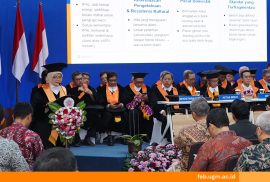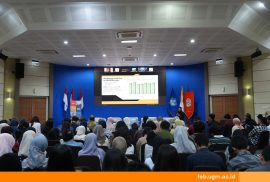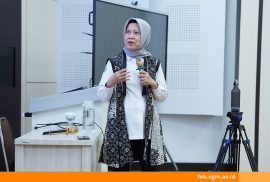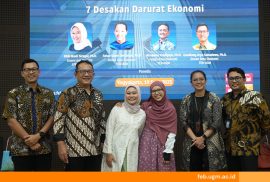Behind the beauty of batik motifs, born from generations of tradition, lies a significant dilemma: the chemical dye waste that often pollutes the rivers surrounding batik production centers.
In university life, students are often faced with various choices, ranging from invitations to hang out and socialize after class to sudden weekend trips.
By: Prof. Dr. R. Agus Sartono, M.B.A.
Professor, Department of Management, Faculty of Economics and Business, Universitas Gadjah Mada
Deputy for Education and Religion, Coordinating Ministry for People’s Welfare/Ministry of Religious Affairs of the Republic of Indonesia 2010-2014
Providing free nutritious meals, as seen in MBG, is actually a good idea, learned from the experiences of developed countries.
Consumption of packaged sweetened beverages (MBDK) is not only a threat to health but also an economic burden on the country.
Attending university is not only about pursuing academic achievements but also about maintaining personal balance.
The Faculty of Economics and Business, Universitas Gadjah Mada (FEB UGM), held a briefing session for students receiving the Kartu Indonesia Pintar Kuliah (KIP-K) Scholarship.
The Faculty of Economics and Business, Universitas Gadjah Mada (FEB UGM), organized a self-development activity in the form of recreation for professional staff at the Faculty Administration Office (KAF) FEB UGM.
Sugary drinks have long been a favorite among many Indonesians.
Indonesia is among the countries with the highest dengue fever mortality rates in Asia.
The Equitable Transformation for Alleviating Poverty and Inequality Working Groups FEB UGM collaborated with the Indonesian Economists Alliance (AEI) to hold a public discussion entitled Seven Urgent Economic Demands on Friday (19/9/2025) at the Faculty of Economics and Business, Gadjah Mada University.
Can we help you?










